1937 Mussolini regime President Italian Royal Academy of Sciences French medal
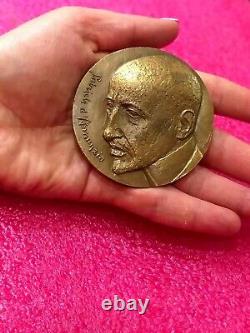
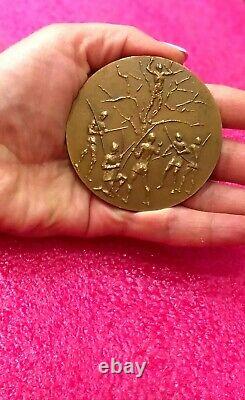
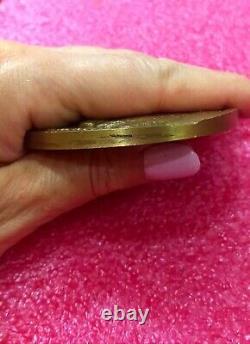
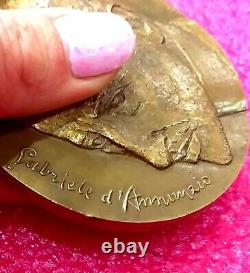
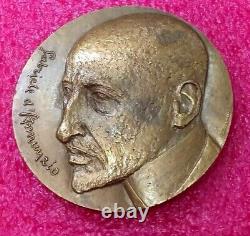

Bronze, Paris MINT, CONDITION VERY GOOD, PLEASE CHECK PHOTOS!! 1st Regent of the Italian Regency Carnaro (Republic of Fiume). University of Rome La Sapienza. Francesco Cicognini National Boarding School. , nee Gaetano Rapagnetto d'Annunzio Italian.
Writer, poet, playwright, military and political figure. Member of the Royal Academy of French Language and Literature of Belgium. Gaetano Rapanetto d'Annunzio was born March 12.
In the city of Pescara. In the Italian province of Abruzzo. At the age of eleven he entered the privileged college of Cicognini. Early discovered a poetic talent. In school years he published a collection of poems, the circulation of which was distributed to classmates and teachers.
However, the revolutions of "ethereal Persians on which the whole night passes" and "barbaric lust of kisses" alerted the teachers. The administrative council gathered, the poet received a strict warning. But even later, in his novels, poems and dramas, d'Annunzio reflected the spirit of not only romanticism, heroism and patriotism, but, equally, epicureanism.
Strongly influenced the Russian acmeists. By the beginning of World War I he. Was the most famous and popular Italian writer. He was in close relationship with Louise Casati.
(who was brought out in the image of Isabella Ingira) and Eleanor Duse. (whose image was included in the novel D'Annunzio "Flame"). D'Annunzio devoted a series of poems "Songs of Overseas Feats" (1911). D'Annunzio participated in battles on the fronts of the First World War.
First in the aircraft, then (after being wounded) in the infantry. (according to other sources - lieutenant colonel). After the war, he became one of the leaders of the nationalist movement associated with fascist organizations. Headed the nationalist expedition that captured the Croatian port city of Rijeka. The Italians, as well as the Hungarians.Call this port Fiume (Fiume). Having appropriated the title of "commandante" (going back to the position of "commandant" among the Boer partisan commandos), Gabriele d'Annunzio became the de facto dictator of the Fiume republic. Comandante d'Annunzio set out to turn the multinational Rijeka into "Terra orientale già Italiana" ("Eastern lands are already Italian").
During the occupation of Rijeka, many elements of the political style of fascist Italy were tested: mass processions in black shirts. Warlike songs, an ancient Roman greeting. Raised hand and emotional dialogue of the crowd with the leader. In December 1920, due to the decisive demand of the Entente, the Italian government forced d'Annunzio and his detachment to leave Rijeka.
Under fascism, in 1924, he received the title of prince. In 1937 he headed the Royal Academy of Sciences. The writer died from an apoplexy stroke on March 1. At his estate Vittorial on Lake Garda. Mussolini's regime held a solemn funeral for him. Officer of the Military Order of Italy. Awarded by Royal Decree No. Cavalier of the Military Order of Italy Awarded by Royal Decree No. This item is in the category "Coins & Paper Money\Exonumia\Medals". The seller is "top-art-medals" and is located in this country: IL. This item can be shipped worldwide.
